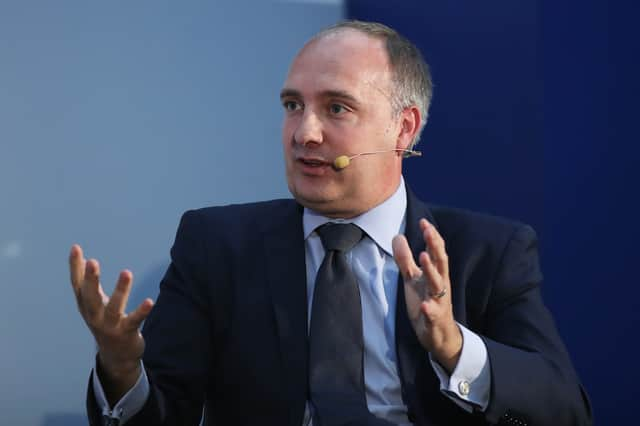Newcastle United and Man Utd 'vehemently disagree’ on FFP vote that can supercharge Saudi-backed takeover


Premier League clubs are set to vote on potential FFP/PSR changes that could result in a robust spending cap.
Newcastle United and the other 19 shareholders will decide on Monday whether to “anchor” financial power across the top flight. If passed, new proposals would stop clubs spending more than five times what the lowest team in the division earns from TV revenue.
Advertisement
Hide AdAdvertisement
Hide AdThis landmark overhaul to the FFP/PSR system would de facto introduce wage caps, with transfer and agent fees also affected. For context, last season’s bottom club, Southampton, earned £103.6million from TV revenue.
Manchester United’s wage bill stood at a staggering £205million but their transfer output was also just over £200million - keeping them in the black. Chelsea would have been the only Premier League to breach the restrictions if they were in place last season.
It does, however, come as no surprise that Sir Jim Ratcliffe - Man United’s minority owner - opposes the proposals, according to The Telegraph. Others at the upper echelons of the division are rumoured to be “vehemently opposed” to the suggestion ahead of Monday’s vote.
For Newcastle, the new measures, if approved, allow Toon chiefs to bankroll a summer spending spree. Planet Football list the Magpies’ wage bill as £84million last season, a figure that has only increased slightly.
Advertisement
Hide AdAdvertisement
Hide AdThat would give Newcastle £434million worth of headroom to spend on transfers, agents and salaries. Concerns over the future of FFP/PSR have dominated off-field discourse in recent months following a lean January window and several points deductions.
Premier League clubs have already decided to cap spending at 85 per cent of their total income - aligning FFP/PSR with the UEFA model. The latest motion would act as an extra layer of governance designed to reduce the disparity between the Championship.
Comment Guidelines
National World encourages reader discussion on our stories. User feedback, insights and back-and-forth exchanges add a rich layer of context to reporting. Please review our Community Guidelines before commenting.
